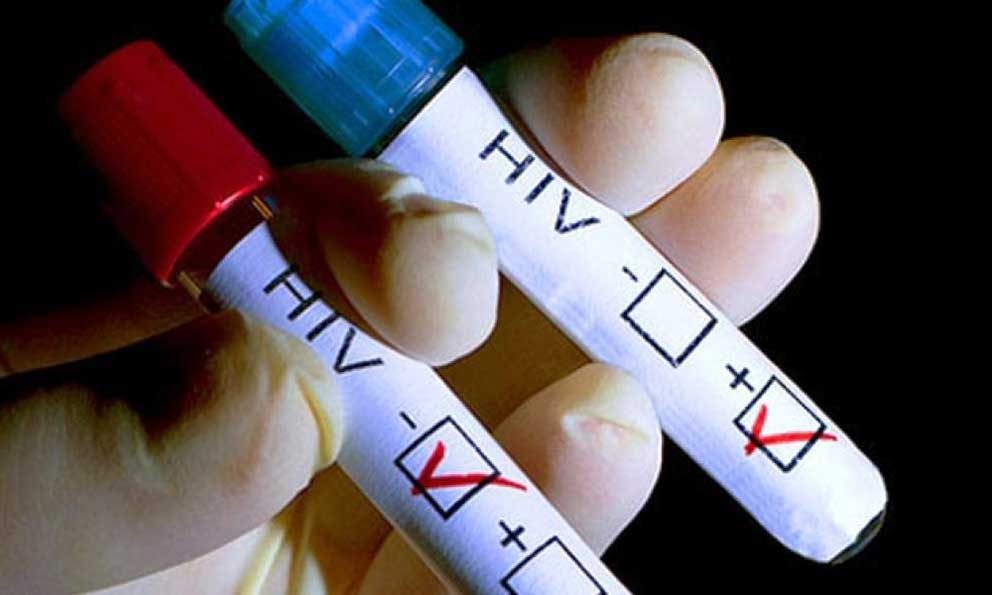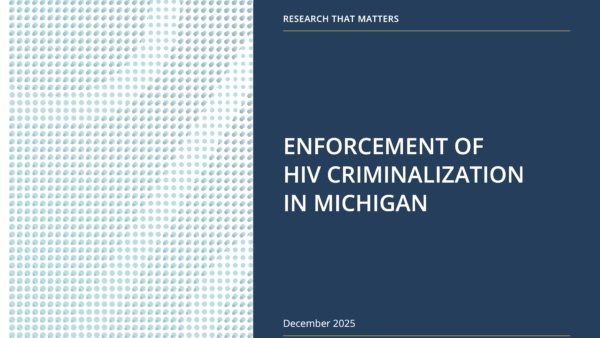
English translation (Para artículo en español, desplácese hacia abajo)
Civil association urges a rethink of the criminalisation of HIV transmission as such an amendment to the penal code would promote higher levels of stigma and discrimination.
San Luis Potosi, SLP.- With regard to the initiative presented during the Ordinary Session No. 44, on October 27, 2016 in the State Congress by the State Governor Juan Manuel Carreras Lopez and Erika Velasquez Gutiérrez, the president of the Women Institute in San Luis Potosi, the civil association Amigos Potosinosen Lucha Contra el Sida condemned the initiative which they say, stigmatize people living with the Human Immunodeficiency Virus (HIV), and have therefore called for reconsideration of the initiative put forward, conveying the following position:
1. It is important to promote actions that recognise the human rights of women through the varied international tools signed and ratified in this matter by the Mexican State, and which have been become mandatories following the constitutional reform of 2011 in the field of Human Rights.
2. It is not advisable to seek to punish conducts that are perceived to be fraudulent with regard to HIV and other sexually transmitted infections, as the evidence tell us that HIV prevention is not achieved through punitive measures, but by public health policies which promote changes at the structural level, to facilitate equal access to services that guarantee the sexual and reproductive health of women, and also strengthen programmes and activities that promote equality between women and men.
3. Criminalisation promotes stigma and discrimination against people with HIV, including girls, children, adolescents and women, contradictorily promoting actions that violate the dignity of these vulnerable groups.
4. It is very difficult to determine causality, fraud and intention and other varied factors involved in HIV transmission such as: the possibility of transmission, the type of exposure, the use of condoms or not, at what stage of infection the person is, whether the person is on antiretroviral treatment, if their viral load is undetectable, if there is any concomitant infection, the health status of the receiving partner and the agreements between spouses or casual partners, among others.
5. It is important to emphasize that punitive measures such as those intended to legislate through this initiative, could hinder and affect various multisectoral actions in prevention, detection and HIV care in our state.
6. It might influence people who perceive themselves as having risk factors for HIV, to not undergo testing in order not to know their status and avoid any potential criminal proceedings made possible by testing. Such legislation may affect the continuous detection, prevention and care of HIV in Mexico [1], which seeks to facilitate the early diagnosis of people who perceived themselves to at risk so they can receive timely treatment to improve their quality of life and also help to curb the transmission chain.
7. Scientific evidence indicates that to stop the chain of transmission of HIV from one person to another, it is essential to combine prevention strategies, which include biomedical, behavioural and structural change, the latter emphasizing the need for actions that contribute to the eradication of stigma and discrimination associated with HIV-AIDS, and a punitive law does not contribute to these strategies.
8. The specific content of this initiative “Risk of contagion” could result in the legal responsibility for HIV prevention to fall only on those living with HIV, and could conceal the public health message that sexual partners have shared responsibility for their sexual health. People may mistakenly assume that their partners are HIV-negative because they are unaware of their status or do not disclose it, and they would therefore stop taking preventive measures.
9. Such amendments to the penal code will promote higher levels of stigma and discrimination against diverse HIV populations and their families.
Amigos Potosinos en lucha contra el Sida urges the State governor Juan Manuel Carreras Lopez and Erika Velázquez Gutiérrez president of the Women Institute in San Luis Potosi (sic), to reconsider the criminalization of HIV, as to do so would place people with HIV under a status of being possible criminals, which is contrary to their dignity as persons, violating their human rights and stigmatising them for their health condition.
Better yet, we encourage you to promote the creation of the State Council for the control of HIV, AIDS and STIs in San Luis Potosi, and to increase resources to prevent, detect and address HIV in a timely manner; to improve the quality and comprehensiveness of care services in the State that are provided by CAPASITS and by hospitals in the health system; to generate and strengthen empowerment programs for women and actions that seek to promote equal opportunities between women and men; finally to reduce stigma and discrimination against key populations affected by HIV and other STIs incorporating the MIPA principle [3] which speaks of greater involvement of people living with HIV as part of the solution and response, thereby contributing to a democratic, inclusive and non-discriminatory Mexico.
—————————————–
Asociación Civil pide reconsiderar tipificar como delito trasmisión del VIH. Este tipo de adecuaciones al código penal promoverán mayores niveles de estigma y discriminación.
San Luis Potosí, SLP.- En relación a la iniciativa presentada, en la Sesión Ordinaria No. 44, día 27 de octubre del 2016 al Congreso del Estado, por el gobernador del Estado Juan Manuel Carreras López y Erika Velázquez Gutiérrez presidenta del Instituto de las Mujeres en San Luis Potosí la asociación civil Amigos Potosinos en Lucha Contra el Sida condenaron la iniciativa que a decir de ellos, estigmatiza a las personas con contagiadas con el Virus de Inmunodeficiencia Humana (VIH), por lo que llaman a reconsiderar la iniciativa formulada, difundiendo el siguiente posicionamiento:
1.- Es importante impulsar acciones a favor del reconocimiento de los derechos humanos de las mujeres en el orden internacional de los diversos instrumentos que en esta materia ha suscrito y ratificado Estado Mexicano, lo cual se convierte en obligatorio a partir de la reforma Constitucional del año 2011 en materia de Derechos Humanos.
2.-No es recomendable buscar castigar las conductas que se perciben como dolosas en relación al VIH y otras infecciones sexuales, ya que la evidencia científica nos señala que la prevención del VIH no se logra con medidas punitivas, sino con políticas en salud pública que faciliten acciones que promuevan cambios a nivel estructural que faciliten la igualdad en el acceso a servicios que garanticen la salud sexual y reproductiva de las mujeres, así también fortalecer los programas y acciones que promuevan la igualdad entre mujeres y hombres
3.- La penalización favorece el estigma y la discriminación hacia personas con VIH, incluyendo a las niñas, niños, adolescentes y mujeres, por lo que resulta contradictorio impulsar acciones que contravienen a la dignidad de estos grupos vulnerables.
4.- Es muy difícil determinar la causalidad, el dolo, la intencionalidad ya que intervienen diversos factores en la trasmisión del VIH, como son: la posibilidad de la trasmisión, el tipo de exposición, el uso o no de condón, la etapa de la infección en la que se encuentra la persona, si lleva tratamiento antirretroviral, si tiene carga viral detectable o indetectable, si existen enfermedades concomitantes, el estado de salud de la pareja receptora y los acuerdos establecidos entre cónyuges o parejas ocasionales, entre otros.
5.- Es importante enfatizar que medidas punitivas como las que se pretende legislar a través de esta iniciativa, podrían obstaculizar y afectar las diversas acciones multisectoriales en materia de prevención, detección y atención del VIH en nuestro Estado.
6.- Podría influir a que las personas que se perciban con factores de riesgo ante el VIH, omitan realizarse una detección temprana a fin de no conocer su estado serológico en virtud de prevenir un posible proceso penal. Este tipo de legislaciones pueden afectar al Continuo de la detección, prevención y atención en VIH en México[1], el cual busca que las personas que se perciban en riesgo se realicen un diagnóstico temprano, puedan recibir un tratamiento oportuno que mejore su calidad de vida y además contribuya a frenar la cadena de transmisión.
7. La evidencia científica señala que para detener la cadena de trasmisión del VIH de una persona a otra es indispensable realizar estrategias de prevención combinada, entre las cuales, destacan las biomédicas, las comportamentales y las de cambio estructural, estas últimas enfatizan las acciones que contribuyen a erradicar el estigma y la discriminación asociado al VIH-sida, y una ley con acciones punitivas no contribuye con estas estrategias.
8.- El contenido en específico de esta iniciativa de “Peligro de contagio” podría provocar que la responsabilidad jurídica de la prevención del VIH recaiga solamente en quienes viven con VIH, y podría invisibilizar el mensaje de salud pública de que las parejas sexuales tienen responsabilidad compartida sobre su salud sexual. Las personas podrían suponer erróneamente que sus parejas son VIH-negativas porque desconocen o no revelan su estado serológico, por tal dejarían de incorporar medidas de prevención.
9.-Este tipo de adecuaciones al código penal promoverán mayores niveles de estigma y discriminación hacia las diversas poblaciones con VIH y sus familias.
Amigos Potosinos en lucha contra el Sida exhorta al gobernador del estado Juan Manuel Carreras López y a Erika Velázquez Gutiérrez presidenta del Instituto de las Mujeres en San Luis Potosí (sic), a reconsiderar la penalización del VIH, de hacerlo colocarían a las personas con VIH bajo un estatus de posibles criminales, contraviniendo a su dignidad como personas, atentando a sus derechos humanos y estigmatizándoles por su condición de salud.
Mejor aún, le exhortamos a impulsar la creación del Consejo Estatal Para el control del VIH, Sida e ITS en San Luis Potosí, además incrementar los recursos para prevenir, detectar y atender oportunamente el VIH; mejorar la calidad e integralidad de los servicios de atención en el Estado que son otorgados desde los CAPASITS y hospitales del sector salud; generar y fortalecer programas de empoderamiento para las mujeres y acciones que busquen promover la igual de oportunidades entre mujeres y hombres; por último a disminuir el estigma y la discriminación hacia las poblaciones clave y personas afectadas por el VIH y otras ITS incorporando el principio MIPA[3] que habla del mayor involucramiento de las personas con VIH como parte de la solución y respuesta, con ello contribuir a un México democrático, incluyente y sin discriminación.









